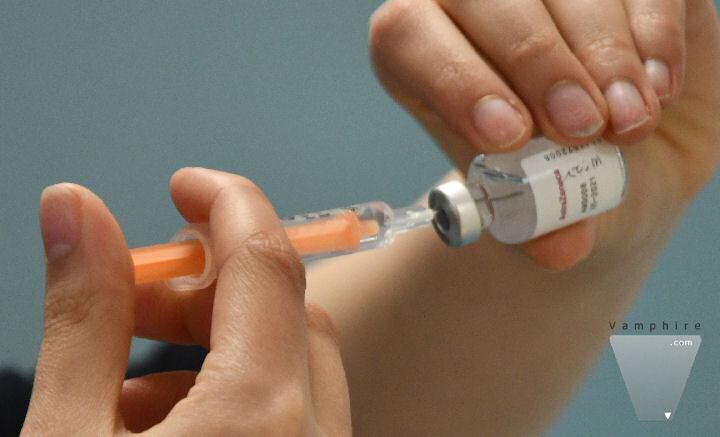"Amazing" to see knife crime campaigner Laura Hughes in Parliament, says Bill Esterson MP

BILL Esterson MP has praised
the work of a Merseyside charity which is educating
the public on how to help deal with stab wounds and
potentially save lives. KnifeSavers aims to empower
people to deal with bleeding caused by knife
injuries through Bleed Control Kits, an education
programme, and a step by step app.
The charity was founded by trauma Doctors at Aintree
Hospital and is supported by the families of
stabbing victims, such as Laura Hughes, whose
brother Colin McGinty died after being stabbed in
Bootle in 2001. Laura and other family members set
up the #kNOwknifecrime initiative, which aims to
educate young people on the wider lasting impact of
knife crime and dissuade the carrying of knives and
other weapons.
Knifesavers was in Parliament this week to raise
awareness among MPs, after having to postpone
previous events due to the Pandemic.
Bill Esterson, MP for Sefton Central, met with Laura
and the team and praised the work they were doing.
Mr Esterson said:- "It was amazing to see
Knifesavers finally in Parliament today. I'm so
proud of Laura Hughes and consultant Nikhil
Misra for promoting bleed control kits to save
the lives of stab victims, road traffic accident
victims and so many more people. They are doing
a brilliant job putting the kits into
communities across Merseyside and Cheshire, not
least in Formby with parish Council funding.
Loads of pubs and restaurants are taking the
kits. Remember, bleed control kits help stop
someone from bleeding to death while waiting for
an Ambulance. If you know somewhere that could
have a kit, let KnifeSavers know. I support this
charity and urge other to as well."
If you do not already know, KnifeSavers is a not for
profit programme that empowers people to deal with
bleeding caused by knife injuries through our Bleed
Control Kits, education programme, and our step by
step app.
After being stabbed, a person can bleed to death in
just 5 minutes. A rapid response Ambulance often
takes 7 minutes to arrive at the scene.
KnifeSavers wants everyone to be able to stop the
bleeding; keeping someone alive for long enough to
get them an Ambulance, and get them to Hospital. Our
aim is for you to know what to do, and have the
tools to do it. This is knowledge that no 1 can
afford to be without.
KnifeSavers has been founded by trauma Doctors at
the Major Trauma Centre at Aintree University
Hospital in Liverpool, in conjunction with victims
of knife trauma and their families.
Every component has been designed with 1st hand
knowledge of the medical care required to treat the
traumatic injuries sustained following a knife
wound.
There are three simple and effective elements to
KnifeSavers:-
The delivery of a practical educational programme,
both throughout our local community and nationally,
to equip members of the public with the skills
necessary to control bleeding following a knife
wound.
The development of a rapid access, real time
'bleeding control' guide; available
online and through a smartphone app; to support
those who are dealing with a knife wound in front of
them.
The delivery of KnifeSavers 'Bleeding Control
Packs' which are placed in strategic
locations around the City of Liverpool. These packs
have been specially designed to provide real time
assistance to those who are dealing with bleeding
from a knife wound, giving them high quality,
life-saving equipment. Our app and education
programme explain how to use the equipment contained
within these packs.
With the use of Bleeding Control Packs, on a
foundation of education and online guidance,
KnifeSavers empowers individuals to save the lives
of those affected by knife crime, and makes a
positive difference to communities where knife crime
has caused devaStation.
For more about knifesavers
New study shows over 1 in 5 employers will insist on staff to be vaccinated against Covid19 in the year ahead

A new
survey from Acas has found that over 1 in 5
employers plan to implement a:- 'no jab no
job' policy in the year ahead for both
new and existing staff. Acas commissioned YouGov to
ask British businesses about whether they plan to
make it a requirement for staff to be vaccinated
against Covid19 as a condition of employment.
Acas Chief Executive, Susan Clews, said:- "Most
workplaces are starting to navigate what working
life should look like post Pandemic and it is
clear from our poll that most employers have no
plans to require staff to be vaccinated. 1 in 5
employers want to make it a requirement for
staff to be vaccinated against Covid19 in the
year ahead, but this is a very tricky area of
employment law. It is always best to support
staff to get the vaccine rather than insisting
that they get it and it's a good idea for
employers to get legal advice before bringing in
a vaccine policy. Acas has advice on how best to
support staff to get the vaccine and avoid
conflict."
Employers were asked whether they planned to
implement a:- 'no jab no job' policy
for new staff in the year ahead. The poll revealed
that:-
►
22% of employers said:- "yes."
►
52% of employers said:- "no."
►
21% said that they:- "do not know"
or "are not sure."
►
5% said:- "preferred not to say."
Employers were also asked whether they planned to
implement a no jab no job policy for existing staff.
The poll revealed that:-
►
21% employers said:- "yes"
►
55% employers said:- "no"
►
19% said that they:- "do not know"
or are:- "not sure"
►
4% preferred not to say.
There is currently no law in England, Scotland or
Wales that says employees must have the vaccine. The
Government removed the previous requirements for
care home, health and social care staff, on 15 March
2022. Acas advice is that it is best to support
staff to get the Covid19 vaccine rather than
requiring them to get it. If an employer feels it is
important for staff to be vaccinated, then they
should talk with staff or the organisation's
recognised trade union if they have one. Talking
with staff can help to:-
►
Agree a vaccine policy that's appropriate for both
staff and the organisation.
►
Support staff to protect their health.
►
Keep good working relationships.
►
Avoid disputes in the future.
There are some practical ways that employers could
support staff such as paying them their usual rate
of pay if they are off sick with vaccine side
effects instead of statutory sick pay. Employers
could also consider offering staff paid time off for
vaccination appointments.
If someone does not want to be vaccinated, then the
employer should listen to their concerns. Some
people may have health reasons such an allergic
reaction to the vaccine and some employees may have
other reasons for not wanting to be vaccinated.
Employers should be sensitive towards personal
situations and must be careful to avoid
discrimination.
To see Acas's full advice, please visit:-
ACASS.Org.UK.
Its worth adding that with in the Acas commissioned
YouGov to poll of senior decision makers, within a
representative sample of British businesses, it also
found:-
Participants were asked which, if any, of the
following are you / your organisation planning to
implement?
New staff to have been vaccinated against Covid19
(also known as a 'no jab no job' policy) in the year
ahead.
Results:-
►
22% = "Yes... I / we do want to implement."
►
52% = "No... I / we do not want to
implement."
►
21% = "Don't know / Not sure."
►
5% = "Prefer not to say."
Existing staff to have been vaccinated against
Covid19 (also known as a 'no jab no job' policy)
in the year ahead.
Results:-
►
21% = "Yes, I / we do want to implement."
►
55% = "No, I / we do not want to implement."
►
19% = "Don't know / Not sure."
►
4% = "Prefer not to say."
Please note that due to the rounding up of low
figures, the total may not add up to 100% The survey
was carried out online and the total sample size
was:- 1074 adults. Fieldwork was undertaken
between:- 28 March and 5 April 2022. All figures,
unless otherwise stated, are from YouGov Plc and
have been weighted and are representative of British
business size.









